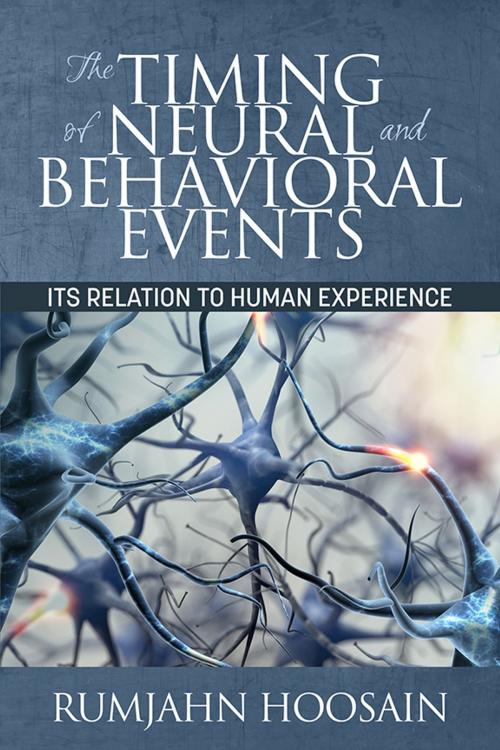The Timing of Neural and Behavioral Events
Its Relation to Human Experience
Nonfiction, Health & Well Being, Psychology, Research, Neuropsychology, Cognitive Psychology| Author: | Rumjahn Hoosain | ISBN: | 9781681237725 |
| Publisher: | Information Age Publishing | Publication: | February 1, 2017 |
| Imprint: | Information Age Publishing | Language: | English |
| Author: | Rumjahn Hoosain |
| ISBN: | 9781681237725 |
| Publisher: | Information Age Publishing |
| Publication: | February 1, 2017 |
| Imprint: | Information Age Publishing |
| Language: | English |
This monograph reviews cognitive and neuroscience studies of the relations between timing of both neural and behavioral events and human experience. The historical roots of these discussions are traced to the beginning of modern psychology. In the beginning of experimental psychology in Leibzig, Wundt worked on how elements of sensation relate to consciousness. In later development of psychology, the timing of conscious and unconscious processing of information, the timing of events in learning including language learning, mental speed and intelligence, and the speed of cognition visàvis emotion are all crucial questions. Systematic consideration of neural times is complementary to conventional neuroscience research, such as the Blue Brain Project focusing on neural structure. The discussion of neural times in the literature tends to be fragmented, incidental to whatever is the subject matter. This book attempts to treat neural times in the whole range of basic psychological processes more systematically, and shows how they are germane to the understanding of many cognitive and behavioral phenomena. Neural times are related to the evolutionary development of the brain and the human experience. A crucial dynamic in the interaction of evolutionarily older and newer regions of the brain depends on timing. The interaction of the generally faster unconscious processes, including emotions, and more deliberate processes results in greater variation of experiences and behaviors which is central to free will and adaptive for humankind as a whole. This monograph is intended for senior undergraduates, graduate students, and professionals interested in an indepth look at the role of timing of neural and behavioral processes in affecting human experience. It is not a textbook as such. It is a complementary resource for students of cognitive psychology, learning, and evolutionary psychology.
This monograph reviews cognitive and neuroscience studies of the relations between timing of both neural and behavioral events and human experience. The historical roots of these discussions are traced to the beginning of modern psychology. In the beginning of experimental psychology in Leibzig, Wundt worked on how elements of sensation relate to consciousness. In later development of psychology, the timing of conscious and unconscious processing of information, the timing of events in learning including language learning, mental speed and intelligence, and the speed of cognition visàvis emotion are all crucial questions. Systematic consideration of neural times is complementary to conventional neuroscience research, such as the Blue Brain Project focusing on neural structure. The discussion of neural times in the literature tends to be fragmented, incidental to whatever is the subject matter. This book attempts to treat neural times in the whole range of basic psychological processes more systematically, and shows how they are germane to the understanding of many cognitive and behavioral phenomena. Neural times are related to the evolutionary development of the brain and the human experience. A crucial dynamic in the interaction of evolutionarily older and newer regions of the brain depends on timing. The interaction of the generally faster unconscious processes, including emotions, and more deliberate processes results in greater variation of experiences and behaviors which is central to free will and adaptive for humankind as a whole. This monograph is intended for senior undergraduates, graduate students, and professionals interested in an indepth look at the role of timing of neural and behavioral processes in affecting human experience. It is not a textbook as such. It is a complementary resource for students of cognitive psychology, learning, and evolutionary psychology.















